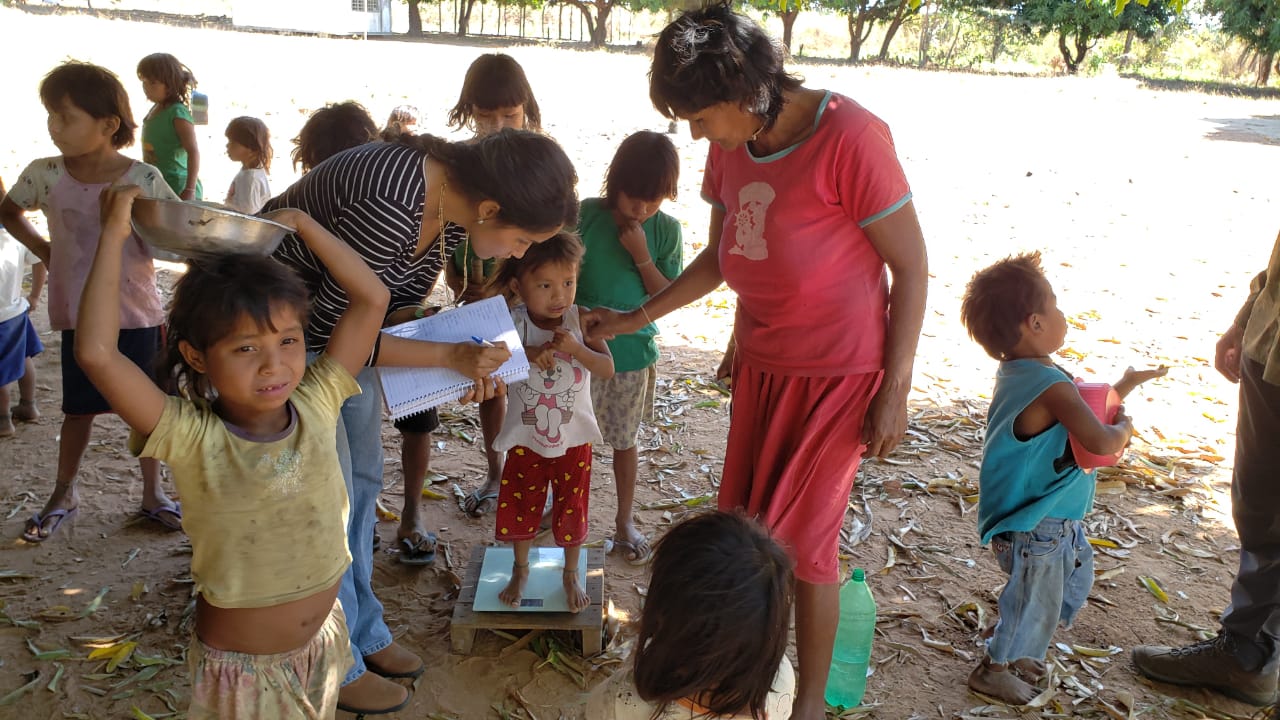BRAZIL: Volunteers provide nutrition and health support to Xavante people

Work is part of efforts of Operation Mato Grosso, a Salesian initiative
(MissionNewswire) St. Dominic Savio Parish’s Children’s Pastoral Care in Campinápolis, Brazil, recently visited the Xavante village of Santa Fé, where 120 people live in 10 homes. The visit is part of the volunteer efforts of Operation Mato Grosso, a Salesian initiative that provides volunteer support to aid local Indigenous communities.
A month before, the team had been there assessing the health of children at serious risk of malnutrition and returned to monitor these children. Team members found most had a significant jump in weight, showing improvement and recovery. Two of the children who were being monitored were admitted to the Indigenous Health Home (CASAI) to provide them with better health support. During this visit and over the month of support, families received donations of food baskets, and on specific days a hot dish was served to all villagers.
The Children’s Pastoral Care team includes Salesian Deacon José Alves, Delma Cristina, CASAI nutritionist, Djanira Ro’ojadwe Tsi’ewadi, Indigenous manager, and Dieter Willems, a Belgian volunteer.
Willems also participated in activities with the Mobile Missionary Assistance project team, coordinated by Luís Würstle, who was in Campinápolis to provide maintenance for artesian wells in several villages in the area. Willems, an economist, spent about a month in the Indigenous area of Mato Grosso, providing missionary activities.
Also volunteering during this time was Dr. Paolo Fior, an Italian pulmonologist, who collaborated with Salesians in June. Dr. Fior said, “My experience has been to be with people, especially the Xavante people. I’ve been helping out at the health center because they really need health services for many of the diseases they are affected by. There are many children in the villages who need it. Access to health care is complicated, so it’s a good thing to be able to help them in their own villages themselves.”
Dr. Fior added that taking care of the health of Indigenous people is a way to help preserve the culture of the people. “I realized that this work is very important. It is also very important for the city of Campinápolis to know that there are people who go all the way to the very last village to give them some attention as well. We prepared food for them to show that there are people who care about them, who care about their health, and who like and respect the Xavante people.”
According to the World Bank, the COVID-19 pandemic has had a devastating impact on Brazil with poverty tripling in 2021. Nearly 17 million people fell into poverty in the first quarter of the year and the poverty rate now is higher than it was a decade ago. Researchers estimate that 12.8 percent of Brazil’s population, some 27 million people, are now living below the poverty line.
Inequalities also exist in access to education and educational efficiency. These inequalities are greatest for children and youth who are poor, live in rural areas or who have an incomplete compulsory education. Salesians working with poor youth and their families in Brazil develop programs and provide youth with opportunities for furthering their education and skills.
###
Sources:
ANS Photo (usage permissions and guidelines must be requested from ANS)
Salesian Missions – Brazil
World Bank – Brazil





